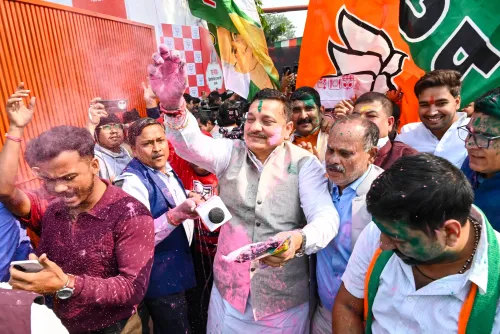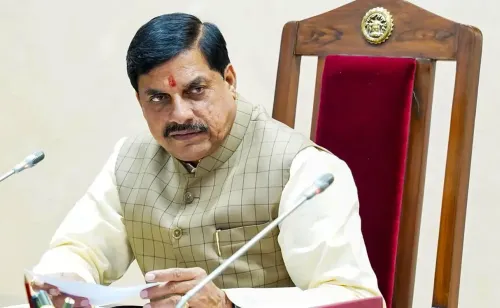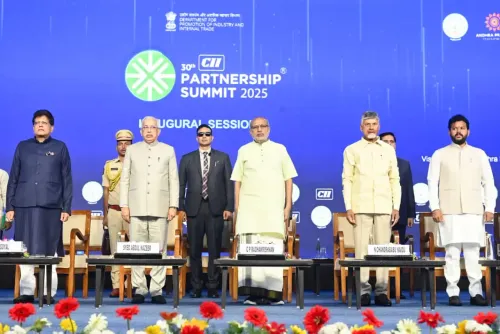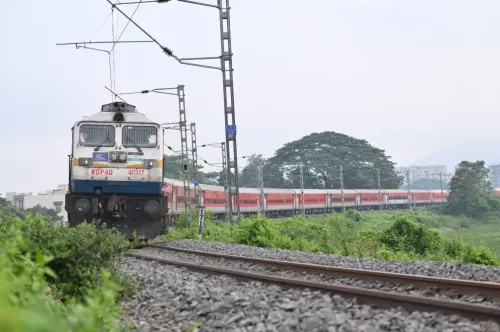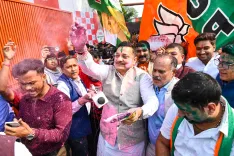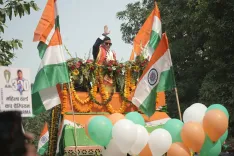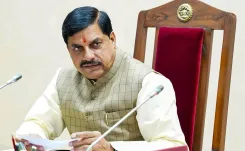Is India the 5th Nation to Create a Fully Indigenous 4G Stack?
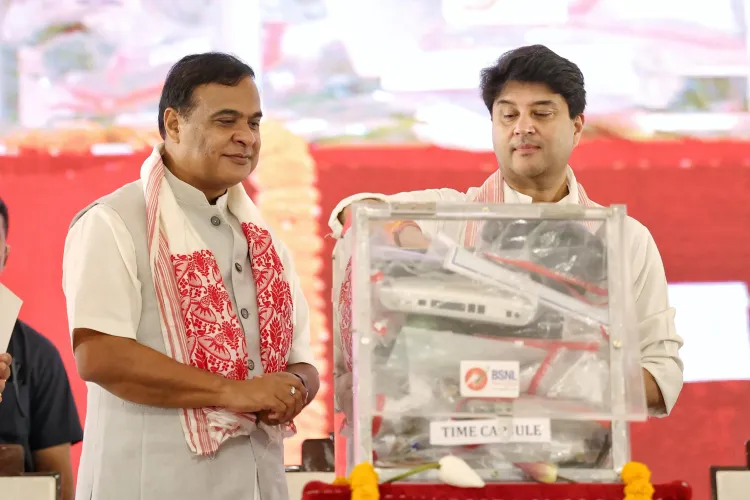
Synopsis
Key Takeaways
- India has developed its own 4G stack.
- Over 19,000 towers activated for connectivity.
- Aiming for 5G and 6G leadership.
- Connecting nearly 30,000 previously unserved villages.
- Significant step towards Aatmanirbhar Bharat.
Guwahati, Sep 27 (NationPress) The Digital Bharat Nidhi (DBN) initiative has successfully activated 19,823 out of 27,106 designated towers, effectively connecting 26,327 villages and nearly 2 million households across aspirational districts, regions in the North-East, border areas, and zones affected by Left Wing Extremism (LWE), announced Union Communications Minister Jyotiraditya Scindia on Saturday. He emphasized that India has now joined an exclusive group of five countries that have developed their own 4G stack.
In the month of August alone, these towers enabled an impressive 42,773 TB of data usage, averaging 21 GB per customer.
“From the remote landscapes of Odisha to the mountainous terrains of Assam, DBN guarantees that education, healthcare, and governance are accessible to everyone,” Scindia stated as Prime Minister Narendra Modi officially launched India’s fully indigenous 4G stack and 100,000 BSNL indigenous 4G towers from Jharsuguda, Odisha.
Participating virtually from Assam, Scindia was joined by Chief Minister Himanta Biswa Sarma, who underscored the historical importance of this milestone.
Commending this groundbreaking achievement, Scindia remarked that, under the vision of Prime Minister Modi for an Aatmanirbhar Bharat (Self-reliant India), BSNL has committed to the development of its own indigenous 4G stack.
“This is a proud moment for our nation as India strides towards becoming a global leader in the telecommunications industry,” he added.
Indigenous 4G towers were inaugurated across various states with the involvement of key Union Ministers and Chief Ministers. In Odisha, for instance, CM Mohan Charan Majhi participated; in Andhra Pradesh, Union Ministers Ram Mohan Naidu and Chandrashekhar Pemmasani along with CM N. Chandrababu Naidu were present; in Uttar Pradesh, Union Minister Pankaj Chaudhary and CM Yogi Adityanath attended; in Maharashtra, Union Minister Raosaheb Nikhil Khadse, CM Devendra Fadnavis, and Deputy CMs Eknath Shinde and Ajit Pawar were present; in Rajasthan, Union Minister Arjun Ram Meghwal and CM Bhajanlal Sharma participated; in Assam, CM Himanta Biswa Sarma joined; in Gujarat, Union Minister Mansukh Mandaviya and CM Bhupendra Patel were present; and in Bihar, Union Minister Giriraj Singh and CM Nitish Kumar took part.
“Historically, India relied on foreign technology for 2G, 3G, and 4G. Today, BSNL has turned this narrative around, establishing India as a global hub for telecom manufacturing,” Scindia stated.
This cloud-based, 5G-upgradable indigenous stack currently serves over 20 million citizens and connects nearly 30,000 previously underserved villages.
Scindia emphasized BSNL's role in positioning India for future leadership in 5G and 6G, with the indigenous stack primed for global export, embodying the principle of Vasudhaiva Kutumbakam.

